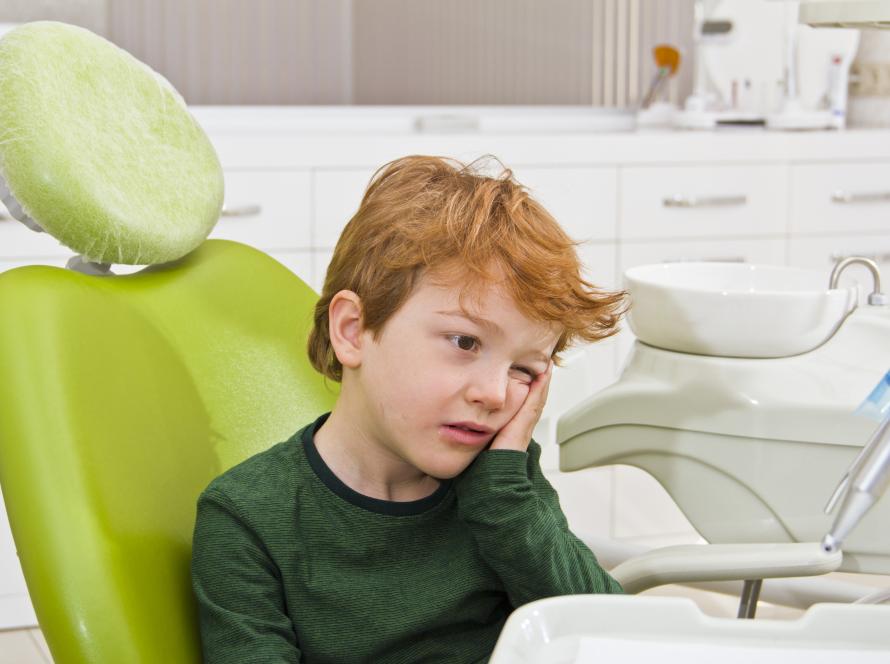Many parents might not realize that babies and toddlers are susceptible to cavities, often referred to as “early childhood caries.” Despite being temporary, baby teeth are vital for proper chewing and speech development and serve as placeholders for adult teeth. Cavities in these early teeth can lead to pain, infections, and more severe dental issues. Fortunately, parents can take several simple steps to prevent cavities, including proper nutrition, limiting sugar intake, regular brushing, and early exposure to fluoride. Establishing these habits can help ensure a healthy smile for years to come. (Source: What to Expect, How to Prevent Cavities in Baby Teeth, by Catherine Donaldson-Evans, Medically Reviewed by Michelle Kelman, D.D.S., March 18, 2022, https://www.whattoexpect.com/first-year/teething/healthy-teeth.aspx#brush ).
Toronto Kids Dental comments, “At Toronto Kids Dental, we emphasize the importance of starting kids oral care early. Cavities in baby teeth, often referred to as ‘early childhood caries,’ are common and can lead to pain and infection and affect adult teeth development if untreated. Educating parents on preventive care is key to safeguarding children’s oral health.”
Dish up foods rich in vitamins and minerals
Foods rich in calcium, phosphorus, and vitamins like A, C, and D are essential for the growth and strength of your child’s teeth. These nutrients help build strong enamel and prevent decay.
Toronto Kids Dental agrees, ” There is no question that a balanced diet is essential for maintaining strong, healthy teeth. For young children, foods like dairy, leafy greens, and fortified cereals can contribute to healthier, stronger teeth. In addition to brushing and regular dental check-ups, incorporating these nutrients into meals helps protect baby teeth from decay, which is especially critical since these teeth will guide adult teeth into their proper place.”
Avoid grazing
Constant snacking can increase the exposure of your child’s teeth to sugar and acids, both of which can contribute to the development of cavities. Limiting snacks to designated times and encouraging water between meals is best.
Toronto Kids Dental says, “Frequent snacking is a significant factor in the development of cavities in baby teeth. The constant exposure to food and drink (especially sugary options) creates an acidic environment in the mouth, weakening enamel over time. Parents should aim for structured meal times and ensure that between snacks, water is the go-to beverage.”
Serve sugar in moderation
While it’s difficult to eliminate sugar entirely, keeping it to a minimum can prevent tooth decay. Offer natural sugars like those in fruits rather than processed sugars in candies and snacks.
Toronto Kids Dental agrees, “Sugar is one of the leading causes of cavities in children. Parents should be aware of hidden sugars in snacks, juices, and even seemingly healthy foods like flavored yogurts. By reducing sugar intake, you significantly lower the risk of decay in baby teeth, which are more susceptible to cavities because of their thinner enamel compared to adult teeth.”
Stick to water
Water is the best drink for dental health as it helps rinse away food debris and sugars while keeping the mouth hydrated. It’s particularly effective when it contains fluoride, which strengthens enamel.
Toronto Kids Dental shares, “Drinking water, especially fluoridated water, plays a surprising yet vital role in children’s oral health. It helps to rinse away residual food particles and maintain the mouth’s pH balance, reducing the acidic environment where cavities thrive. Fluoridated water, in particular, strengthens enamel by remineralizing weakened spots, making teeth more resilient. What’s more intriguing is that consistent water consumption after meals helps cleanse the mouth naturally, reducing reliance on sugary drinks and creating a protective buffer against tooth decay without extra effort.”
Give baby their own spoon
Sharing utensils can transfer bacteria from a parent’s mouth to a child’s, increasing the risk of early cavities. Ensuring your child has their own feeding utensils can reduce this risk.
Toronto Kids Dental comments, “Parents may not realize that cavity-causing bacteria can be transferred through shared utensils. This is one of the reasons why some children experience early tooth decay despite good hygiene practices. Using separate spoons and being mindful of other forms of saliva sharing can help minimize this bacterial transmission. In addition to preventing the spread of cavity-causing bacteria, giving babies their own utensils helps foster independence and motor skills during mealtime. It allows children to explore self-feeding, improve hand-eye coordination, and build a sense of autonomy. ”
Use a cup instead of a bottle
Transitioning from a bottle to a cup by the first birthday can help prevent “bottle tooth decay,” a condition where prolonged exposure to liquids containing sugar, like milk or juice, causes cavities.
Toronto Kids Dental highlights, “Prolonged bottle use, especially with milk or juice, can lead to what’s often called ‘baby bottle tooth decay.’ Encouraging the use of a cup as soon as possible can help avoid this issue, as it reduces the contact of sugary liquids with teeth. Even small steps like this can make a big difference in preventing cavities in baby teeth.”
Brush before bedtime
Brushing before bedtime helps remove plaque and food particles that build up throughout the day.
Toronto Kids Dental comments, “Brushing before bed is non-negotiable when it comes to preventing cavities in baby teeth. At night, the mouth produces less saliva, which means there is less natural protection against plaque. Making sure your child’s teeth are clean before bedtime is crucial for their long-term oral health and sets the pace for future kids oral hygiene routines.”
Use fluoride toothpaste
Fluoride toothpaste helps to strengthen the enamel, making it more resistant to decay. Even baby teeth benefit from fluoride, but be sure to use only a small, rice-sized amount for young children.
Toronto Kids Dental shares, “Fluoride is a powerful tool for preventing cavities. For young children, a rice-sized amount of fluoride toothpaste is sufficient to protect their teeth without overexposure. Starting the habit of using fluoride toothpaste early on helps to build stronger teeth that are more resilient to decay, ensuring a healthier smile as they grow.”
Keep the bottle out of the bed
Putting your child to bed with a bottle, particularly one filled with anything other than water, can lead to cavities. Milk, formula, or juice can pool around teeth, causing decay.
Toronto Kids Dental agrees, “One of the biggest contributors to early childhood cavities is bedtime bottles. When sugary liquids stay in the mouth overnight, they feed the bacteria that cause cavities. It’s crucial to avoid this practice and to encourage parents to only offer water, if anything, at bedtime.”
Caring for your child’s baby teeth is essential to their overall health and the health of their permanent teeth. Establishing strong habits early will help prevent cavities and other oral health issues.
Toronto Kids Dental concludes, “At Toronto Kids Dental, we advocate for proactive dental care from infancy. Baby teeth play a foundational role in a child’s development, so protecting them from decay is critical. Through a combination of good dietary choices, regular brushing with fluoride, dental exams and professional kids dental cleanings, parents can help their children maintain healthy smiles that last well into adulthood.”


